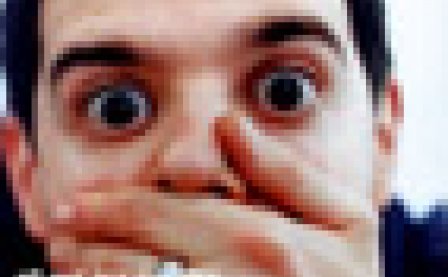It’s been about a decade now since The Street’s Original Pirate Material hit. This is distressing for a host of more personal reasons (at what age can we mourn the passage of time without being rightfully accused of stupid maudlin self-pity?), but I’d prefer to focus (please) on how the world has changed around Mike Skinner. It’s safe to say that none of the same sorts of people who panted and sweated over Pirate — that is, teenagers and young adults who used to read music reviews and go to clubs and such — did the same over Computers and Blues. But the actual people may very well have panted and sweated, because many of them have gone from reading music reviews and going to shows to having families and careers, and by way of conservation of energy have set the Google Alert in their brains to clang only when it spots something they already know. Oh, The Streets have a new one out, like your onetime gnarly Pabst-pounding dad getting psyched over Greg Allman’s Searching for Simplicity in 1997.
I shouldn’t be so bitchy, but there’s something bittersweet in that scenario for those of us still Peter-Panning onward through the 21st century, still chasing that same gobsmacked feeling of the new-new. And it’s particularly insulting to one’s senses of immortal youth and absolute historical centrality that The Streets hasn’t brought that for a long time, certainly not in the way Radiohead somehow manage to get credible music nerds to line up again and again and proclaim the New Messiah, same as the old. Skinner’s last couple of albums got poor critical reception, probably at least one reason he’s taking a last look around the warehouse called The Streets, switching off the lights, and slowly and sadly walking out the door.
But the creative reasons for declaring the end of the project aren’t immediately obvious on Computers and Blues, a solid work that people looking for more Streets won’t be able to hate. It’s got nothing like the awkward hunger of Pirate or the sheer ambition of A Grand Don’t Come for Free, but it’s got Skinner’s signature off-rhythm, junk-bag beats, joined to his completely unique deadpan. There are some lyrical groaners — notably “Blip on a screen/ You don’t know me/ I think about you/ And what you’ll grow to be,” (“Blip on a screen,” about — get it? — an unborn child), and the simply stupid “OMG” (it should be illegal for 30 year olds to make songs about Facebook). Just as latter-day disciples like James Blake and Mount Kimbie are reminding us why we loved it, there’s nothing here that really screams “grime.” But at bottom, Skinner is working the collision between myth and mundania that has always fueled him, and it still works.
If anything obvious sets the new album against Skinner’s early classics, it’s the same inevitable loss of rawness that happens to any successful indie musician these days, as they go from recording on crap microphones into Cakewalk (or if they’re artsy, cassette) to working in big(ger) studios with experienced engineers. Computers and Blues is crystal clear and spacious, though thankfully not to the point of banality. Skinner’s use of smooth singers, however, gets the album there, bloating otherwise balanced tracks like “Soldiers” and “We Can Never Be Friends” into the anthems he once said he’d leave for Artful Dodger. His own atonal moan, a happy necessity on the early records, is too rare here — even interpolated into a complex pastiche with other voices, it helps make “Puzzled by People” the most real track on the record (despite its own borderline lyrical moments).
I wonder how Skinner is dealing with growing older, with no longer being the phenom he once was. In an interview with The Guardian, Skinner came across as deeply melancholy, confronting his own malaise and lack of inspiration. Especially considering his history of self-reflexive releases, then, it’s strange that Computers and Blues contains only one real attempt to address this in music. Even then, “Trying to Kill M.E.” weirdly trades Skinner’s typical directness for some of the most oblique lyrics in his catalogue — “Sleep is like death, so do death when you’re dead/ Bridge disappears through fog in my ears/ For this chronic fatigue there’s no tonic it seems.”
In the end, the album is a collection of songs, mostly good, some indifferent, and all a hundred times more honest than, say, Rihanna. But it’s all really to no transcendent purpose. Rather than a record about indifference, it’s just an indifferent record, and that more than anything indicates how right Skinner is to hang it up. But whatever his limitations at the current moment, Skinner’s leaving (if he’s really leaving) a profoundly transformed global music scene in his wake. Even Computers and Blues, which entered the British charts at #8, is more fundamentally challenging and interesting than it is flawed. And if you can do something like that before you’re old enough to have teenage kids, then it’s hardly worth crying over no longer being one yourself.
More about: The Streets


